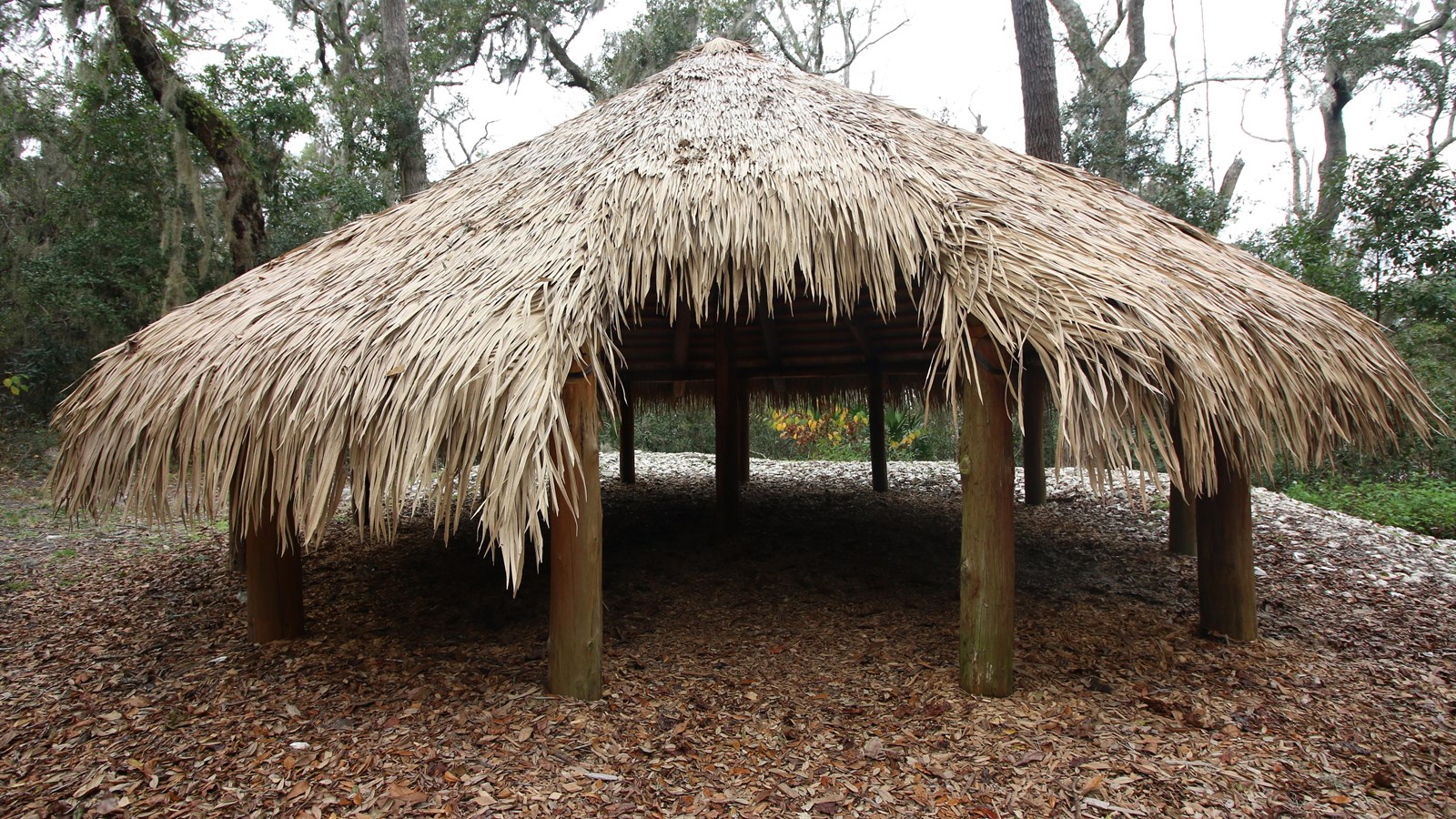Last updated: June 22, 2023
Place
Timucuan Town Exhibit

NPS Photo
Benches/Seating, Historical/Interpretive Information/Exhibits
The Timucua were a group of indigenous people who lived in current-day southern Georgia and northern Florida. The Timucua all spoke dialects of the same language, although they were not united politically, living in different tribes with their own territory and dialects. They would not have seen themselves as one people. When Europeans first arrived in Florida in the 1500s, the Timucua occupied over 19,000 square miles of land and their population was likely about 200,000. However, by 1800, there were no more Timucua left as an organized tribe. They had been desimated by disease, and scattered becoming incorporated into other tribes such as the Seminole and Muscogee Creek Nation, or were removed to Spanish missions in Cuba. It is one of the goals of the Timucuan Ecological and Historic Preserve to remember how the Timucua lived and to tell their stories.
These stories are often told at the Timucuan Town exhibit located at Fort Caroline National Memorial. This exhibit is located along the Huguenot Memorial Trail. It contains an amphitheater style benches for large presentations, a recreated Timucua hut, outbuilding, ethnobotanical garden, shell midden, canoe making demonstration and more. Here volunteers and rangers will present on the Timucua people and give demonstrations of crafts, skills, and lifeways.
